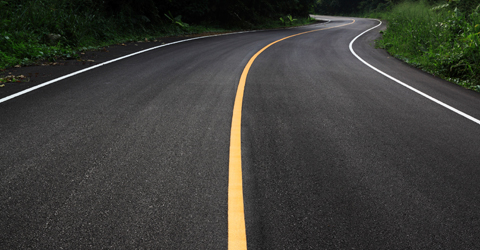Checking Out the Environmental Benefits of Warm Mix Asphalt
The utilization of Warm Mix Asphalt in infrastructure tasks provides a compelling case for sustainable growth and ecological stewardship. By delving into the elaborate details of its manufacturing procedures and the cutting-edge usage of recycled products, a deeper understanding arises of how this modern technology surpasses plain surface applications. The ecological benefits of Warm Mix Asphalt expand much past initial impressions, offering a nuanced point of view on exactly how this product can lead the way for a greener future.

Lowered Greenhouse Gas Emissions
The production process of Warm Mix Asphalt includes heating the mix of accumulation and asphalt binder to high temperatures. By incorporating recovered asphalt pavement and recycled asphalt roof shingles into the mix, the demand for virgin products is decreased, leading to power cost savings and lowered exhausts associated with removal and handling.
Research studies have actually revealed that Warm Mix Asphalt sidewalks have a smaller carbon impact over their life cycle contrasted to other pavement alternatives. The sturdiness and recyclability of Hot Mix Asphalt better enhance its ecological advantages by lowering the need for frequent upkeep or substitute, consequently conserving sources and decreasing discharges connected with reconstruction tasks.
Energy Efficiency and Conservation
The manufacturing process of Warm Mix Asphalt not just reduces greenhouse gas emissions but also adds dramatically to power performance and conservation initiatives. Power effectiveness is a crucial advantage of Hot Mix Asphalt production contrasted to various other pavement kinds. The sturdiness of Warm Mix Asphalt reduces the frequency of maintenance and restoration, leading to long-lasting power cost savings.
Lasting Pavement Solutions

One secret aspect of sustainable pavement solutions is the use of recycled materials such as recovered asphalt sidewalk (RAP) and recycled asphalt tiles (RAS) By incorporating these products right into the asphalt mixes, the demand for virgin resources is decreased, resulting in lower power intake and greenhouse gas discharges during manufacturing. Furthermore, the reuse of these products aids draw away waste from land fills, adding to a more round and sustainable economic situation.
Moreover, lasting pavement solutions concentrate on maximizing sidewalk layout to improve performance and long life. Methods such as warm mix asphalt (WMA) and rock mastic asphalt (SMA) improve the resilience and durability of sidewalks, decreasing the demand for constant fixings and substitutes. By executing these ingenious strategies, facilities programmers can create pavements that not just fulfill high-performance criteria however likewise reduce their ecological footprint.
Minimized Environmental Effect
With a focus on sustainability and eco-conscious practices, pavement remedies are developed to minimize the environmental impact of building and construction and maintenance processes. Hot mix asphalt, particularly, provides numerous advantages that add to lowering the overall ecological footprint of roadway infrastructure. One key element is the recyclability of asphalt, which can be reused numerous times without jeopardizing its high quality. This characteristic helps in conserving natural deposits and minimizing the amount of waste sent to land fills.
Moreover, the production of warm mix asphalt gives off lower degrees of greenhouse gases compared to other pavement materials, making angled parking it a much more eco-friendly alternative. The energy performance of asphalt plants has actually additionally enhanced for many years, resulting in reduced fuel intake and lower emissions. In addition, the smooth surface of warm mix asphalt decreases rolling resistance for automobiles, leading to reduced gas intake and decreased air contamination from lorry discharges.
Contribution to Climate Adjustment Reduction
Hot mix asphalt plays a crucial function in mitigating climate adjustment via its lasting buildings and decreased ecological influence. One substantial payment to climate modification mitigation comes from the power effectiveness of warm mix asphalt manufacturing. Compared to various other pavement alternatives, the production procedure for warm mix asphalt consumes much less power and discharges lower levels of greenhouse gases, therefore reducing its overall carbon impact.
Additionally, hot mix asphalt's capacity to mirror sunlight, called albedo, assists in reducing city warmth island results. By lessening warm absorption and retention, warm mix asphalt sidewalks can reduce the demand for cooling in metropolitan locations, consequently reducing greenhouse gas exhausts related to power usage for cooling objectives.
In addition, the resilience and recyclability of warm mix asphalt further boost its environment adjustment mitigation capacities. Regrading. The lengthy life-span of asphalt sidewalks lowers the requirement for frequent repairs or substitutes, ultimately reducing the carbon discharges connected to roadway upkeep tasks. The recyclability of asphalt products lessens the need for virgin sources and decreases the ecological effect of pavement building and construction, straightening with lasting techniques for climate change reduction.
Verdict
Finally, the ecological benefits of Warm Mix Asphalt demonstrate its significant contribution to decreasing greenhouse gas exhausts, preserving energy, and reducing environmental influence. This lasting pavement option aligns with climate modification reduction initiatives, advertises resource conservation, and improves facilities growth. By making use of recycled materials, energy-efficient production processes, and resilient style, Warm Mix Asphalt plays a critical role in fostering a more eco-friendly technique to framework building and construction.
The manufacturing procedure of Warm Mix Asphalt entails heating the blend of accumulation and asphalt binder to high temperature levels. By including redeemed asphalt sidewalk and recycled asphalt roof shingles right into the mix, the requirement for virgin products is minimized, leading to energy cost savings and reduced emissions associated with extraction and handling.
One trick facet of lasting pavement services is the use of recycled materials such as redeemed asphalt sidewalk (RAP) and recycled asphalt roof shingles (RAS) Methods such as warm mix asphalt (WMA) and stone mastic asphalt (SMA) boost the durability and strength of sidewalks, minimizing the requirement for frequent repairs and substitutes. Contrasted to other pavement alternatives, the production process for warm mix asphalt eats less energy and emits reduced levels of greenhouse gases, thus lowering its general carbon footprint.